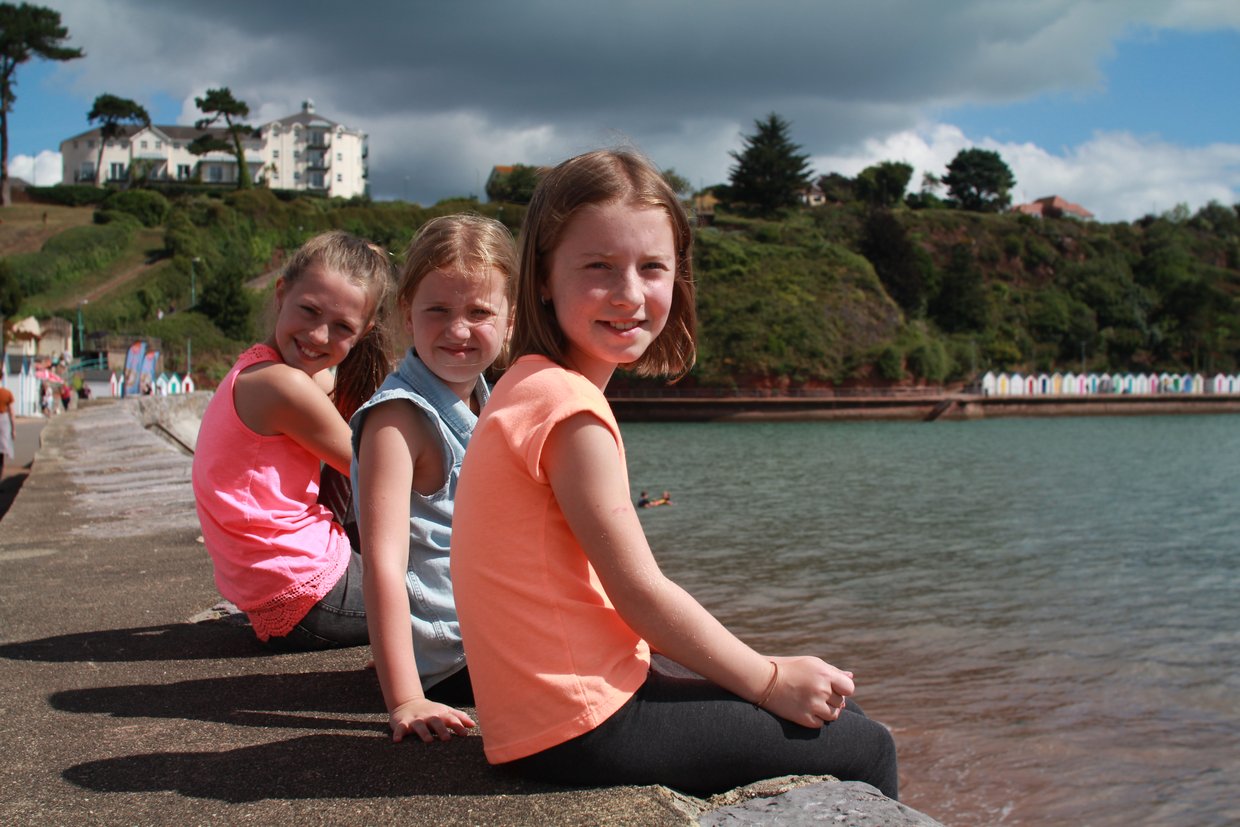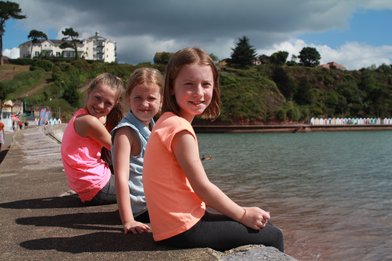Paignton was a small fishing village until the 19th century, when in 1837 the Paington Harbour Act saw the construction of a new harbour and the modern spelling, Paignton, first appeared. It is mentioned in the Domesday Book of AD 1086. Formerly spelt Peynton and Paington, the name derives from Paega's town which was the original Anglo-Saxon settlement. The town has had a market and fair since 1294.
Paignton is rightly famous for the wonderful soft and sandy beaches (with all important child friendly waters) and offers a bright and family fun atmosphere. There are traditional seaside activities with paddle boats and canoes or there are motor boats and cruise boats for hire. If you're feeling full of energy you could try water skiing, scuba diving, snorkeling, surfing, fishing and that much admired pastime, crabbing. Don't forget, bacon is the best bait of all - ooh, and don't forget to throw the poor crabs back in the water when you're done. There are also waterslides and crazy golf to try your hand at too.
Paignton beach and the nearby Preston Sands are used for water sports including kite surfing and dinghy sailing. The reed beds found at Broadsands beach are a haunt of the rare cirl bunting. Hollicombe beach, situated at Paignton's northern boundary with Torquay, features a geological stratotype at its northern end, known as the "Corbyn's Head Member". Elberry Cove is used by jetski enthusiasts, while Saltern Cove is a Site of Special Scientific Interest due to its distinctive geology. At Goodrington beach you can hire pedaloes, sun loungers, beach huts and deck chairs. There are also various water sports on offer, including water skiing and ‘ringo rides’. Younger visitors will be able to make the most of the QuayWest Water Park, which boasts eight water-slides and flumes, the Kamikaze ride and a supervised play area for toddlers.
Agatha Christie lived in nearby Torquay and often attended the Torbay Picture House in Paignton and based the theatres in her thrillers on that cinema









